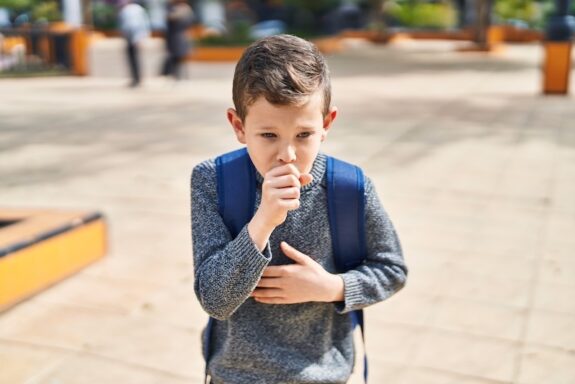
What are seizures?
Seizures are a sudden and uncontrolled change in a person’s movement, consciousness, affect, and behavior. The symptoms of a seizure vary, but the ones most people are familiar with are classified as tonic-clonic or “grand mal” seizures (https://www.hopkinsmedicine.org/health/conditions-and-diseases/epilepsy/tonic-clonic-grand-mal-seizures) , that cause a person to lose control of their body, and experience convulsions and a loss of consciousness.
What is epilepsy?
Epilepsy is a seizure disorder. According to the Epilepsy Foundation, epilepsy is the most common neurological disorder in the world and causes recurring seizures. We do want to mention that not all seizures are the result of epilepsy. Your child is likely to be diagnosed with epilepsy if they experience recurring seizures over time without other symptoms such as fever or brain injury.
What causes childhood seizures or epilepsy?
Seizures occur when the brain sends abnormal electrical signals. There is a range of what the body can do when having a seizure. Some people may lose consciousness and convulse. Some may have slight movement of the body. There are many things that can cause a seizure including:
- Lack of oxygen to the brain
- Head injury
- Genetic causes
- Fever (febrile seizures)
- Disorders of brain development
What are febrile seizures?
Febrile seizures are convulsions that occur in young children, usually between the ages of 6 months and 5 years, as a result of a high fever, typically above 100.4°F. They are one of the most common neurological conditions in children and affect around 2-5% of children in this age group.
Febrile seizures can be terrifying for parents to witness, as the child may lose consciousness, shake uncontrollably, and their body may become stiff or twitch. They usually last for only a few minutes and do not cause any long-term harm, but they can be a sign of a serious underlying illness.
There are two types of febrile seizures:
1. Simple
2. Complex
Simple febrile seizures are the most common type and typically last less than 15 minutes. They do not involve repeated seizures within 24 hours, and the child returns to their normal state of health quickly after the seizure.
Complex febrile seizures are less common and are characterized by seizures that last longer than 15 minutes or recur within 24 hours. These seizures can be associated with a higher risk of developing epilepsy later in life.
Medical Attention
It is essential to seek medical attention immediately if your child experiences a febrile seizure, particularly if it is a complex febrile seizure or if your child has difficulty breathing or turns blue. The doctor will want to determine the underlying cause of the fever and may recommend testing or further evaluation to rule out any serious illness.
In most cases, febrile seizures can be prevented by managing the underlying fever through medication such as acetaminophen or ibuprofen. In some cases, anticonvulsant medications may be prescribed to prevent future seizures.
Little Spurs Pediatric Urgent Care opened in 2006 in San Antonio, Texas. With multiple locations in San Antonio and Dallas, they are open seven days a week with extended evening hours and see walk-in patients or through an online check-in system. They accept most commercial insurance and Medicaid plans.



